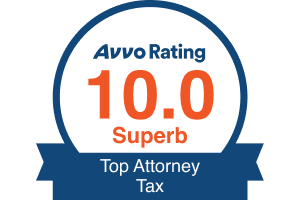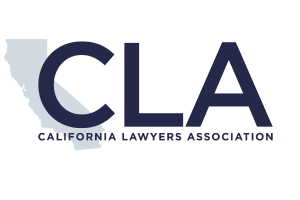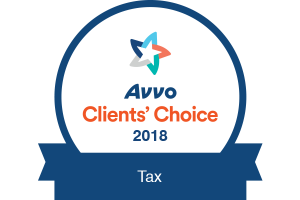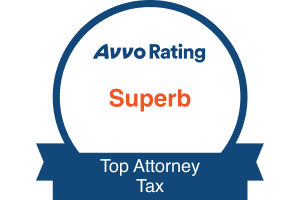Getting Results
Top 25 FAQs Re IRS and California Taxes
IRS Tax Problems
1. What are the most common IRS tax problems individuals and businesses face?
FAQs IRS tax problems include:
- Failure to file tax returns: Missing filing deadlines can lead to penalties and interest.
- Failure to pay taxes owed: Not paying taxes due can result in liens, levies, or wage garnishments.
- Inaccurate tax returns: Errors or underreporting income can trigger audits or penalties.
- Tax debt accumulation: Unpaid taxes accrue interest and penalties, escalating the debt.
- Audits: The IRS may audit returns to verify income, deductions, or credits.
Solution: File returns on time, pay what you can, and consider IRS payment plans like Installment Agreements or Offers in Compromise (OIC) for tax debt. Consult a tax professional for audit representation.
2. What happens if I can’t pay my IRS taxes?
If you can’t pay, the IRS may:
- Assess penalties (up to 25% of unpaid taxes) and interest.
- Place a lien on your property or levy bank accounts/wages.
- Offer payment options:
- Installment Agreement: Monthly payments based on ability to pay.
- Offer in Compromise: Settle for less than owed if you qualify (rare).
- Currently Not Collectible (CNC): Temporarily halt collection if you prove financial hardship.
Solution: Contact the IRS immediately to negotiate a plan. Provide financial documentation to support your case. Avoid ignoring notices.
3. How can I resolve an IRS tax lien or levy?
- Tax Lien: A legal claim against your property. To resolve:
- Pay the debt in full.
- Request a lien withdrawal after payment or under certain conditions (e.g., entering an Installment Agreement).
- Apply for a lien discharge for specific property sales.
- Tax Levy: Seizure of assets or wages. To resolve:
- Pay the debt or enter a payment plan.
- Request a levy release by proving financial hardship.
Solution: Respond to IRS notices promptly. Work with a tax attorney to negotiate lien/levy releases.
4. What triggers an IRS audit?
Audits may be triggered by:
- High income or large deductions relative to income.
- Discrepancies between reported income and third-party documents (e.g., W-2s, 1099s).
- Claiming unusual or excessive deductions (e.g., home office, charitable contributions).
- Random selection or related examinations (e.g., business partners audited).
Solution: Keep accurate records and receipts. Respond to audit notices promptly and consider working with a tax lawyer.
5. How long does the IRS have to collect unpaid taxes?
The IRS has 10 years from the date of tax assessment to collect unpaid taxes (Collection Statute Expiration Date, or CSED). Extensions may apply if you file bankruptcy, request an OIC, or leave the country.
Solution: Track your CSED and consult a tax lawyer to explore delaying tactics or settlement options if the statute is near expiration.
IRS Payroll Tax Problems FAQs
6. What are IRS payroll tax problems?
Payroll tax problems occur when employers fail to:
- Withhold income, Social Security, or Medicare taxes from employee wages.
- Deposit withheld taxes with the IRS.
- File quarterly payroll tax returns (Form 941) or annual returns (Form 940).
Consequences: Penalties (up to 15% for late deposits), interest, and personal liability for “responsible persons” under the Trust Fund Recovery Penalty (TFRP).
7. What is the Trust Fund Recovery Penalty (TFRP)?
The TFRP holds individuals (e.g., business owners, officers) personally liable for unpaid “trust fund” taxes (employee withheld taxes). The IRS can assess 100% of the unpaid amount against responsible persons.
Solution: Prove you weren’t responsible or didn’t act willfully. Pay the debt or negotiate an IRS payment plan. Seek legal counsel to contest TFRP assessments.
8. How can I resolve IRS payroll tax debt?
- Pay the full amount to avoid further penalties.
- Request an Installment Agreement for monthly payments.
- Apply for an OIC (rare for payroll taxes due to trust fund nature).
- Prove financial hardship for CNC status.
Solution: Prioritize paying trust fund portions to limit TFRP exposure. Work with a tax attorney to negotiate with the IRS.
9. What happens if I miss payroll tax deposits?
Missing deposits triggers:
- Penalties: 2–15% of the unpaid amount, depending on delay length.
- Interest on unpaid taxes.
- IRS collection actions (liens, levies) if unresolved.
Solution: Make deposits on time (monthly or semiweekly, per IRS rules). If missed, pay as soon as possible to minimize penalties.
California EDD Payroll Tax Problems
10. What are California EDD payroll tax issues?
The California Employment Development Department (EDD) oversees state payroll taxes, including unemployment insurance (UI), employment training tax (ETT), and state disability insurance (SDI). Common issues include:
- Failure to register with the EDD.
- Not withholding or remitting state payroll taxes.
- Late or non-filed EDD returns (e.g., DE 9, DE 9C).
- Misclassifying employees as independent contractors.
Consequences: Penalties (10–25% of tax due), interest, and potential personal liability.
11. How do I resolve EDD payroll tax debt?
- Pay the debt in full to stop penalties and interest.
- Request an EDD payment plan (installment agreement) if unable to pay in full.
- Appeal assessments if you believe they’re incorrect (within 30 days).
- Correct misclassification issues and amend prior returns.
Solution: File missing returns, even if you can’t pay immediately. Contact the EDD to negotiate payment terms or appeal.
12. What is the EDD’s process for misclassification audits?
The EDD audits businesses to ensure workers are correctly classified as employees or contractors. Audits focus on:
- Control over workers (e.g., setting hours, providing tools).
- Integration into the business (e.g., performing core services).
- Compliance with California’s ABC test (AB 5).
If misclassified, you may owe back taxes, penalties, and interest.
Solution: Maintain clear contractor agreements and documentation. Consult a tax attorney during EDD audits to minimize liability.
13. Can the EDD hold me personally liable for payroll taxes?
Yes, the EDD can pursue personal liability for corporate officers or responsible persons if the business fails to pay payroll taxes, similar to the IRS TFRP.
Solution: Demonstrate you weren’t responsible for tax payments. Seek legal advice to challenge EDD assessments.
CDTFA Sales Tax Problems
14. What are CDTFA sales tax problems in California?
The California Department of Tax and Fee Administration (CDTFA) administers sales and use taxes. Common issues include:
- Failing to collect or remit sales tax on taxable sales.
- Not filing CDTFA returns (e.g., quarterly or monthly).
- Underreporting sales or claiming improper exemptions.
- Not obtaining a seller’s permit.
Consequences: Penalties (10–40% of tax due), interest, liens, or business closure.
15. How do I resolve CDTFA sales tax debt?
- Pay the full amount owed.
- Request a CDTFA installment agreement.
- Apply for an OIC (rare and requires proving inability to pay).
- Appeal assessments within 30 days if erroneous.
Solution: File all returns, even if unpaid, to avoid additional penalties. Contact the CDTFA to negotiate payment plans.
16. What triggers a CDTFA audit?
Audits may be triggered by:
- Discrepancies in reported sales vs. bank deposits or industry norms.
- High volume of exempt sales (e.g., resale exemptions).
- Late or missing returns.
- Tips from customers or competitors.
Solution: Keep detailed sales records, invoices, and exemption certificates. Hire a sales tax attorney for audit defense.
17. Can the CDTFA seize my business assets?
Yes, the CDTFA can issue liens, levy bank accounts, or seize assets (e.g., inventory, equipment) for unpaid sales taxes. They may also revoke your seller’s permit, halting business operations.
Solution: Respond to CDTFA notices immediately. Negotiate payment plans or request hardship relief.
IRS Criminal Tax Issues
18. What constitutes an IRS criminal tCriminal Tax Defenseax issue?
Criminal tax issues involve willful violations of tax laws, such as:
- Tax evasion: Intentionally underreporting income or inflating deductions (IRC § 7201).
- Filing false returns: Submitting fraudulent returns (IRC § 7206).
- Failure to file: Willfully not filing returns when required (IRC § 7203).
- Fraudulent claims: Filing for improper refunds or credits.
Consequences: Fines up to $250,000 ($500,000 for corporations), imprisonment (up to 7 years for evasion), and restitution.
19. How does the IRS investigate criminal tax issues?
The IRS Criminal Investigation (CI) division handles cases, using:
- Audits revealing intentional misconduct.
- Whistleblower tips or third-party reports (e.g., banks, employers).
- Data from tax returns, financial records, or undercover operations.
Cases may be referred to the Department of Justice for prosecution.
Solution: Retain a criminal tax attorney immediately if contacted by IRS CI. Avoid speaking to investigators without counsel.
20. Can I avoid criminal charges through the IRS Voluntary Disclosure Program?
Yes, the IRS Voluntary Disclosure Program allows taxpayers to report unreported income or false returns to avoid prosecution, provided:
- The disclosure is timely (before IRS investigation begins).
- You fully cooperate and pay all taxes, penalties, and interest.
Solution: Consult a tax attorney to file a voluntary disclosure and ensure compliance with program requirements.
California Criminal Tax Issues
21. What are California criminal tax issues?
California criminal tax issues, enforced by the Franchise Tax Board (FTB) or CDTFA, include:
- Tax evasion: Willfully underreporting state income or sales taxes (Rev. & Tax. Code § 19706).
- Filing false returns: Submitting fraudulent state tax filings.
- Failure to file: Intentionally not filing required state returns.
- Sales tax fraud: Collecting sales tax but not remitting it to the CDTFA.
Consequences: Fines up to $20,000, imprisonment (up to 3 years), and restitution.
22. How does California investigate criminal tax issues?
The FTB, CDTFA, or California Department of Justice may investigate using:
- Audits showing willful discrepancies.
- Tips from whistleblowers or law enforcement.
- Cross-referencing state and federal tax data.
Cases may lead to state prosecution or joint IRS-state investigations.
Solution: Hire a criminal tax attorney if contacted by state investigators. Do not provide statements without legal representation.
23. Is there a California equivalent to the IRS Voluntary Disclosure Program?
Yes, the FTB offers a Voluntary Compliance Initiative for taxpayers to report unreported income or correct false returns. Benefits include potential penalty waivers, but you must:
- File amended returns and pay taxes owed.
- Act before an investigation begins.
The CDTFA also has voluntary disclosure programs for sales tax issues.
Solution: Work with a tax lawyer to submit a voluntary disclosure and ensure full compliance.
24. Can California pursue both civil and criminal penalties for the same tax issue?
Yes, California can impose civil penalties (e.g., fines, interest) and pursue criminal charges for the same violation, especially if willful intent is proven.
Solution: Address civil liabilities promptly to reduce criminal exposure. Seek legal counsel to navigate dual proceedings.
General Advice for All Tax Problems
25. Should I handle tax problems myself or hire a professional?
Minor issues (e.g., late filings, small debts) may be manageable with IRS or state agency guidance. However, for complex issues like audits, liens, levies, or criminal investigations:
- Hire a tax attorney for legal issues, criminal matters, or appeals.
- Engage an enrolled agent (EA) or CPA for tax filing or bookkeeping errors.
Solution: Professionals can negotiate better terms and protect your rights, especially in high-stakes cases.
26. How can I prevent future tax problems?
- File all federal and state returns on time, even if you can’t pay.
- Maintain accurate records (e.g., income, expenses, receipts).
- Make timely tax deposits (payroll, sales taxes).
- Use accounting software or hire a bookkeeper for compliance.
- Stay informed about tax law changes (e.g., California AB 5, federal tax credits).
Solution: Regular consultations with a tax professional can catch issues early.
27. Where can I get more information about my specific tax issue?
- IRS: Visit www.irs.gov or call 1-800-829-1040 for individual taxes, 1-800-829-4933 for businesses.
- EDD: Visit www.edd.ca.gov or call 1-888-745-3886.
- CDTFA: Visit www.cdtfa.ca.gov or call 1-800-400-7115.
- FTB: Visit www.ftb.ca.gov or call 1-800-852-5711.





















